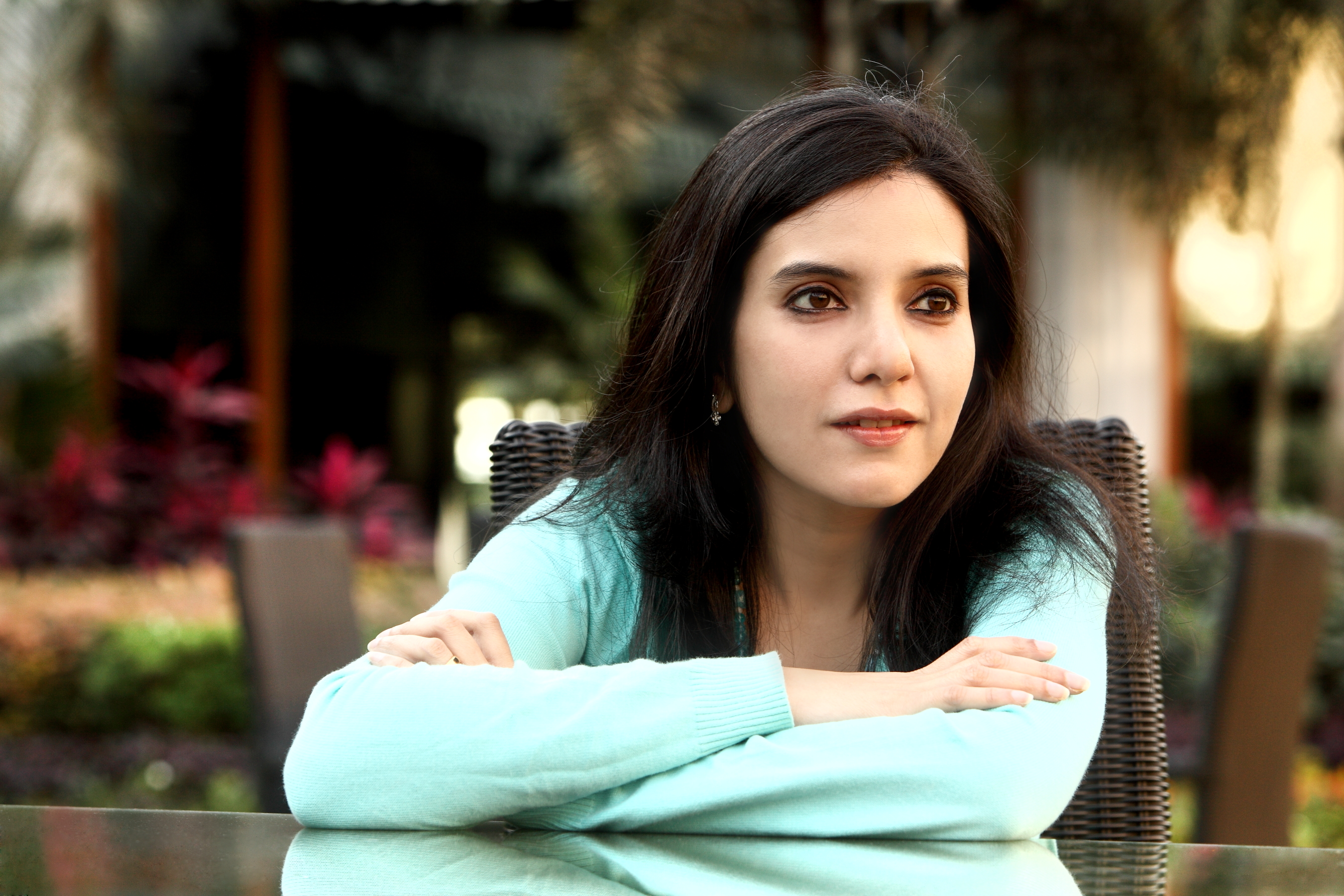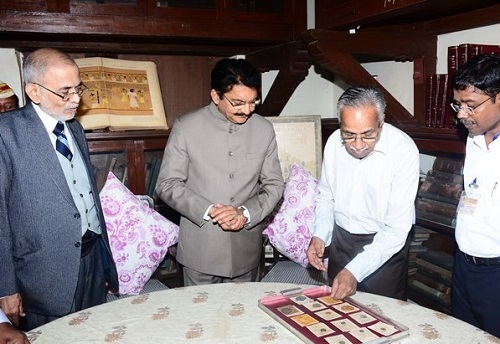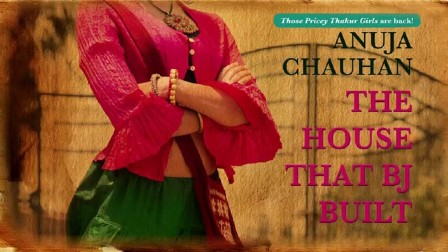Author Naomi Datta gets candid about the business side of book-writing, and the things authors and publishers don’t normally discuss.
by Vrushali Lad | vrushali@themetrognome.in
Naomi Datta is funny and fresh, constantly peppering her comments on writing and getting noticed for her first book, with a healthy dose of self-deprecating humour. We’re sitting at a suburban cafe and all I’ve told her about the interview is that I want to know about how she came to write her first book and the progress she’s making on her second. Her first, The 6 pm slot, was a no-holds barred look into television and dealing with its ecstasies and agonies, all in the back drop of a reality show featuring a hot host.
“I’m not making much progress on the second book,” she grins, only revealing that her next offering is a non-fiction work. “I don’t want it to be just another book. In India, we’re always labelling fiction – it’s either literary or commercial fiction. My first book immediately got slotted as a work of commercial fiction, and unfortunately, such books are not taken too seriously. Our idea of literary fiction is to write about really serious themes, such as NRIs and their existential crises, or a war situation in some obscure part of the world. Everything else is commercial fiction which is not to be taken seriously.”
She adds that it is very easy to be published today, in what she cheekily terms as the post-Chetan Bhagat era. “Before he wrote about call centres and IITs, it was a very big deal to be published. If you had a book coming out, people knew about your book and you, even if they hadn’t read it. But Chetan wrote about Indian issues, things we could understand and relate to. And then so many young Indian authors had books coming out after Chetan and Amish Tripathi’s books. My book would probably not have been published in the earlier, staid market. There was no way anyone would publish an Indian book that didn’t have angst, which did not have an international appeal, and which was about television. So I guess Chetan has made it very easy to get published today.”
But she admits that it is that much more difficult to stand out in the crowd of new authors today, especially because commercial fiction in India tends to take the ‘FMCG mould of writing,’ as she puts it. She says, “With writing that is not always of great quality, commercial fiction today is trying to be as ‘massy’ as possible, catering to the lowest common denominator. The use of satire and irony may not appeal to everyone. Which creates a problem for writers like me, who do well with satire.”
Despite The 6 pm Slot being reviewed and written about extensively, and with Naomi being interviewed by all and sundry, the book garnered only about 10,000 copies in sales, she says. “The marketing of the book was great – we had a launch at Crossword and it was all well done. Also, Random House took a lot of effort on the manuscript – about six months were spent in editing and proofing alone. But because of the cover, people thought it was chick lit. I have nothing against chick lit if it’s written well. But my book wasn’t about a girl trying to lose weight or a woman looking for the right man; it wasn’t about women’s issues.” She adds that several readers thought that the protagonist of the book (Tanya) was ‘not very proactive’. “But she wasn’t the protagonist at all. I guess people wanted her to be a ‘heroine’, but the book was about everyday people like you and me, and what we would do if put in the same situations.”
But a bigger issue than formulaic writing and readers’ usual expectations from plot and language, Naomi says, is the problem of book distribution and how it is being handled in the country.
“I think book distribution is more difficult than film distribution in India. When my book was launched, everyone spoke about it, but barely two weeks later, there were hardly any copies to pick up at any of the book stores. Other authors have also told me about this problem. May be one or two copies of your book would be tucked away in some remote corner of stores. If people can’t see it, why will they buy it?” She laughs as she recalls that she would send out Flipkart links for her book to friends and others wishing to buy it. “I even had a list which told me which stores had how many copies of my book at the moment: Two in one, five in the next, and so on!”
She cites Chetan Bhagat and Amish Tripathi again in the context of cracking the distribution puzzle. “Their publishers flood the market with their books, with the result that Chetan’s books are sold even in the country’s small towns. But not every body has that kind of reach, nor such phenomenal print runs, so a lot of debut authors are having to make the effort to market their own books themselves.”
Naomi adds that these days, with so many books flooding the market each month, authors may have to enlist the help of a good PR machinery and use social networking as much they can. “When I was writing my book, I had only about 90 followers on Twitter. Today I have over 4,000, and I wish I had harnessed Twitter to create a buzz about my book.” Naomi tweets daily and often updates her Facebook status messages. “But I think that social networking is also distracting authors today, because we are constantly tweeting and spending time on FB, when we should be investing time in writing our novels. So while it’s great for an author to be connected to many people, it can also affect your output as a writer.”
About The 6 pm Slot
Tania has a dream job as supervising producer at YTV, a leading entertainment channel. But things are not what they seem – YTV’s ratings and fortunes are dipping, and Tania is the one assigned to resurrect the 6 pm slot with a new talk show and a scantily clad host. But when a dying girl calls on the show, the fun and games come to a screeching halt and it gives Rajneesh Tiwari, the demi god of Indian news television, one of his most explosive ‘human interest’ stories of the year. Will life ever be the same for Tania or anyone involved in the doomed 6 pm slot?
The idea for the story came from Naomi’s real-life experience of putting together a show for a popular music channel. The programme was to feature a busty, seriously sexy female host, but two weeks before shooting began, the femme fatale developed chicken pox. “She had marks all over the famous cleavage that we wanted to flaunt, and the biggest issue was that she couldn’t wax her arms or legs. I was the only woman in a roomful of men to bring up the matter of the girl’s inability to wax. They said things like, ‘But what about Anne French?’ Someone else suggested shaving. When I thought about it later, it seemed really funny and bizarre. My friends suggested I should write it down as a story. When I took a break from television last year, this was the story I started to write,” Naomi remembers. The story was written in four months.




